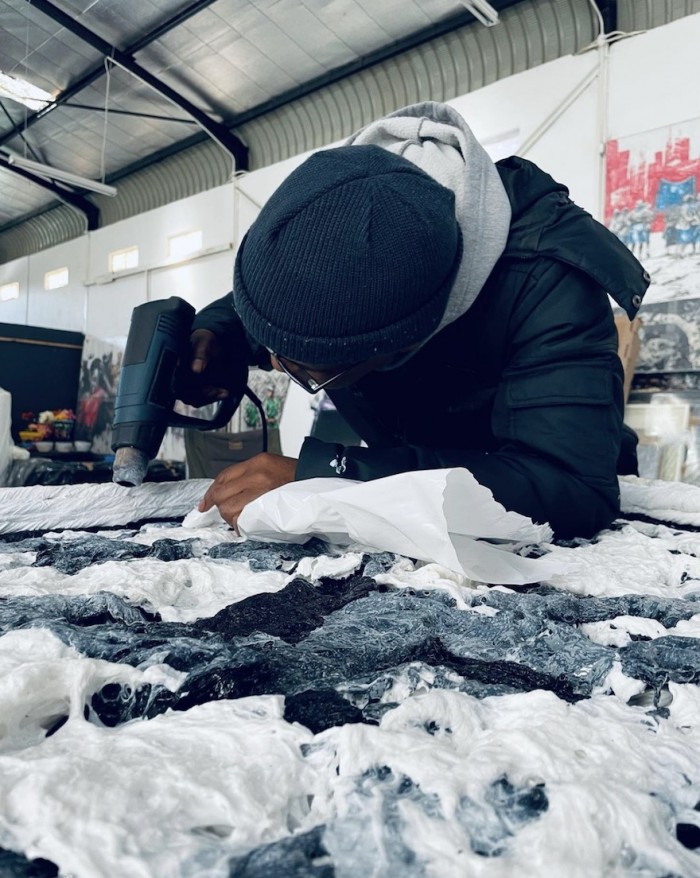Born in rural KwaZulu-Natal, Mbongeni Buthelezi always wanted to be an artist, but a lack of resources made it difficult for him to pursue his goal – or so it seemed when he was a student at a community art college in Soweto.
The determined creative, who holds an Advanced Diploma in Fine Arts from the University of Witwatersrand, tells Design Indaba that two factors influenced his decision to start working with plastic – a readily available material that has become his stock in trade.
“Inside the college, we had a small tuck shop that provided me with a lot of plastics, even though I didn’t really know how to transform them into something different, let alone make art out of them,” he recalls. “However, their vibrant colours caught my eye every day because they were dumped right next to our studio. They were very accessible.”
He was also surrounded by artists who experimented with different materials and introduced him to a tried-and-tested magazine collage technique. “I soon realised that the colours in the plastics were even better than paper,” he says.
This was the start of Buthelezi’s brilliant career, which has seen him exhibiting and taking up artist residencies all over the world, including Germany, Australia, the Netherlands and the US. In 1994, he joined other artists showcasing his work at the Museum of Modern Art in New York. He recently produced a series of figurative portraits of South African township children, the bright, fractured surfaces a metaphor for both hope and devastation, and in 2020 he produced a lockdown series – street scenes capturing the essence of pandemic living.
“I’m one of the artists who started to work with alternative materials very early in their careers,” he says of his experiments with plastics, which began in 1991 before recycling became fashionable. “My work has evolved tremendously over the years, not only in terms of how I’ve developed my technique, but in terms of growth in scale.
An activist concerned about the environment and social justice, Buthelezi says our continent is still struggling with inequality and social imbalances. “Africa has a lot to contribute. We need to believe in our abilities and what we can offer, particularly when it comes to art and culture,” he says. “Art will bounce back even better after Covid-19, as it’s very much a part of social fibre and can’t be divorced from our daily lives.”
Read more:
Credits: Supplied












